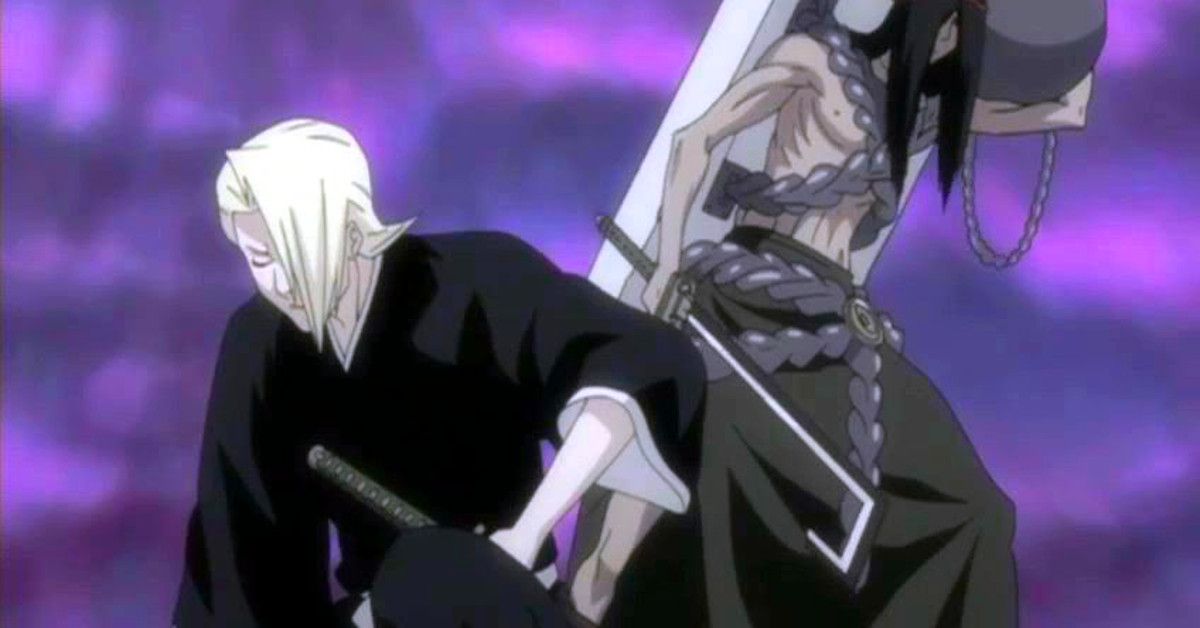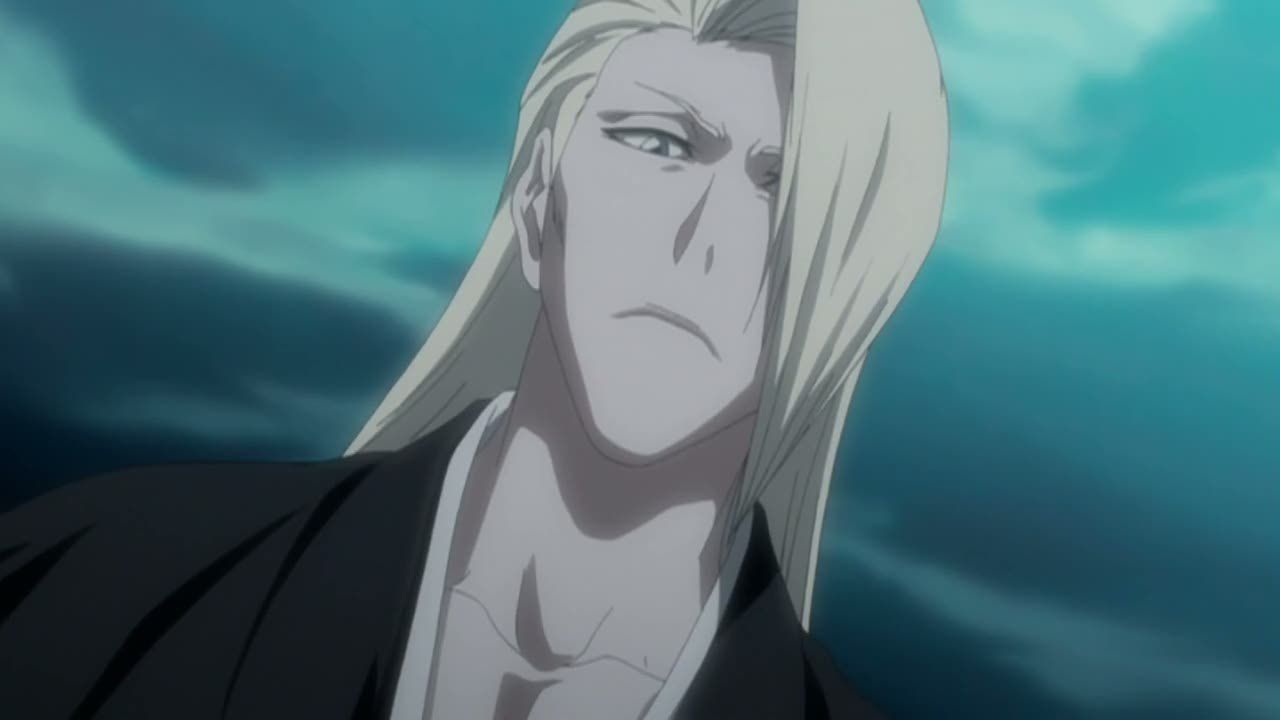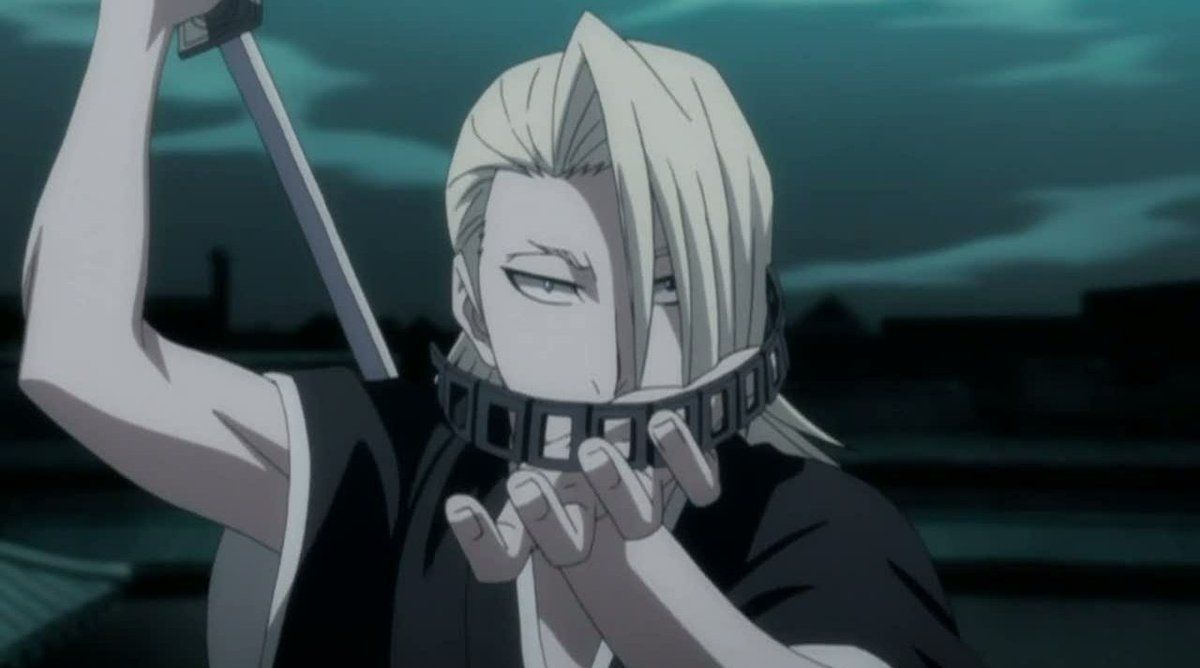In Bleach, black-robed Soul Reapers have a sacred duty: to escort the souls of the dead to the afterlife, even if it means exorcizing a beastly Hollow so its purified soul may move on to the waiting Soul Society. All Soul Reapers answer the call of duty, but some of them see their duty as fun, while others abhor the violence involved. Izuru Kira, Lieutenant of Squad 3, understands the true nature of battle.
Izuru Kira once served under Captain Gin Ichimaru, a strange and mysterious man who hid his true feelings behind nonstop sarcasm and fake smiles, while Izuru Kira's personal creed is all about authenticity and a frank view of what fighting and violence are really like. In that way, Kira and his zanpakuto Wabisuke are the opposite of Captain Ichimaru.
Izuru Doesn't Glorify Bloodshed
Izuru Kira is not a fatalist or a pessimist. Instead, he is honest to himself and his enemies about the grim nature of violence and death. He's the last person to glorify bloodshed, even against the most wicked of Hollows. In many ways, Izuru mirrors the philosophy of his fellow Lieutenant Shuhei Hisagi, who in turn learned a great deal from the former Captain Kaname Tosen. Captain Tosen believed in pacifism and justice. He told Shuhei that battle without a purpose is honorless brutality, and that anyone who takes battle too lightly has no place on the battlefield at all. Shuhei was told that anyone who doesn't respect or fear their own power isn't fit to wield that power, and Izuru Kira feels the same way. Combat is not a joke or a game; it is the last resort for resolving a problem, representing the failure to use words, empathy or logic to resolve an issue. If people are fighting, then all other methods of reaching a solution have failed.
Some characters, such as the bloodthirsty Arrancar Abirama Redder (a minion of Barragan Luisenbarn) mock Izuru for being afraid of his own power and fearing bloodshed. Izuru's enemies think that Izuru has weak resolve and self-doubt, and they take him lightly as a result. But Abirama Redder had it backwards -- he was too full of himself and careless flaunting the power of his zanpakuto, while Izuru Kira fully understood and appreciated his own power.
Izuru is also quite humble, which strengthens him rather than weakens him. When the time has truly come for bloodshed, Izuru will carefully wield his power to execute his enemy, and never will he get careless by treating the battle as a game or a source of honor and glory, setting him apart from Kenpachi. Izuru is a humble servant to his duty and Soul Reaper law. This makes him similar to Captain Byakuya Kuchiki in some ways, though Byakuya had some arrogance about his own power.
Wabisuke's True Meaning
Izuru Kira is proficient with kido spells, but his real power lays with his zanpakuto Wabisuke. Its name is translated to "apology," and in Izuru's battle against Abirama Redder, it's clear why. The sealed form is an ordinary katana-style sword, but when Izuru says "raise your head, Wabisuke," the shikai is released. Wabisuke's blade bends to form a blocky hook of sorts, and Izuru will stay in melee range with his enemy while slicing at them with that shikai. This may not look like much at first, but Wabisuke's effect will soon take hold. Anything that it touches will double in weight, and Izuru can double an item's or a person's weight more than once. Striking an enemy three times makes them eight times heavier than normal, and the fourth blow makes them a whopping 16 times heavier. No one can fight like that.
Wabisuke's weight-doubling effect puts the fear of death into the enemy, driving them to their hands and knees as the reality of battle weighs down on them. The enemy will also bow their heavy head, making it look like they are bowing in apology. Izuru used this power against Rangiku Matsumoto (it was a misunderstanding), then used the full extent of Wabisuke's power on Abirama Redder. That hawk-like Arrancar was indeed on his hands and knees, humbled and terrified as Izuru put his sword in place to decapitate him. Abirama cried out for mercy, but received none, and was executed. Abirama had glorified battle and mocked Izuru, but Izuru grimly showed him the true nature of battle once his shikai was activated. Abirama was taken by total surprise, and it was the last mistake he ever made.



